Mastering the Art of the Ponytail: Tips and Tricks for a Perfect Look
The ponytail—a hairstyle that has transcended decades, evolving from a practical solution for keeping hair away from the face to a fashion statement embraced by celebrities and runway models alike. While it may seem simple, achieving the perfect ponytail requires technique, creativity, and a good understanding of your hair type. In this comprehensive guide, we’ll explore the history of the ponytail, the science behind hair, and provide you with tips and tricks to master this timeless style.
1. The Evolution of the Ponytail
The ponytail can be traced back to ancient civilizations. Historically, it served not just an aesthetic purpose but also a practical one. In ancient Egypt, both men and women were known to sport variations of the ponytail, often adorned with jewelry and beads. As hairstyles evolved through different cultures and eras, the ponytail transitioned from a symbol of practicality to one of style and fashion.
In modern times, the ponytail has garnered attention in various industries. From the professional realm, where it signifies a polished look suitable for the office, to the glamorous scenes of Hollywood, where it has been seen on red carpets, the ponytail holds a versatile place in contemporary fashion.
1.1 Cultural Significance
The cultural significance of the ponytail varies worldwide. In some cultures, it is associated with youthfulness and vitality, while in others, it can signify tradition or functionality. For example, in the world of sports, athletes often wear their hair in ponytails not only for convenience but to project toughness and determination.
1.2 Modern-Day Icons
Icons like Ariana Grande, Jennifer Aniston, and Blake Lively have made the ponytail a staple in their signature looks. Whether sleek and polished or tousled and casual, these variations have influenced many to experiment with their hairstyles.
2. Understanding Your Hair Type
Before you can master the ponytail, it is essential to understand your hair type. Different hair textures, lengths, and conditions require different techniques and products to achieve the best results.
2.1 Hair Types
-
Straight Hair: Usually sleek and shiny, straight hair can hold a ponytail well but may require texturizing products to prevent slipping.
-
Wavy Hair: This hair type adds volume and texture to a ponytail, but it may require products that control frizz to maintain definition.
-
Curly Hair: Curly hair can yield a fabulous ponytail, especially a high, voluminous one. Using the right moisture-rich products can help keep curls defined.
-
Coily/Kinky Hair: This hair type is incredibly versatile but often requires more effort to secure a ponytail. Using moisturizing creams and gels can aid in both hold and shine.
2.2 Thickness and Length
Your hair’s thickness and length also play a significant role in how you achieve the perfect ponytail. Thicker hair may require stronger elastics, while fine hair may benefit from volumizing sprays to give the illusion of fullness.
3. Essential Tools and Products
Having the right tools and products can make a world of difference when crafting the perfect ponytail. Here’s a rundown of what you’ll need:
3.1 Tools
-
Hair Ties: Opt for hair ties that won’t damage your hair. Spiral hair ties or fabric-covered elastics are great choices.
-
Bobby Pins: For securing flyaways and adding embellishments.
-
Brushes and Combs: A paddle brush for detangling and a fine-tooth comb for sleek styles.
-
Hairspray: A light-hold hairspray can set your style without making it look stiff.
3.2 Products
-
Texturizing Spray: Great for adding grip to fine hair.
-
Mousse: Perfect for adding volume to wavy or curly hair.
-
Gel or Pomade: To tame edges and create a polished finish, especially for coily hair.
-
Leave-in Conditioner: Helps maintain moisture, especially for dry hair types.
4. Techniques for the Perfect Ponytail
Having the right approach is crucial for mastering the ponytail. Below, we break down various techniques depending on the desired outcome.
4.1 The Classic Ponytail
The classic ponytail is a go-to style for many. Here’s how to achieve it:
-
Preparation: Start with clean, dry hair. If your hair is fine, use a texturizing spray for grip.
-
Gathering Hair: Use a brush to gather your hair at your desired height—low at the nape of the neck, mid-height, or high atop your head.
-
Securing: Use a hair tie to secure the ponytail, ensuring it’s tight enough to withstand movement but not so tight that it causes discomfort.
-
Finishing Touches: Smooth down any flyaways with a bit of gel or hairspray and adjust the ponytail to ensure it’s even.
4.2 The Messy Ponytail
For a more relaxed look, the messy ponytail is ideal. Here’s how to do it:
-
Texturize: Begin with second-day hair or use a texturizing spray for grip.
-
Gathering Irregularly: Instead of pulling hair back neatly, let some strands fall out as you gather it. This will add volume and a carefree look.
-
Secure Loosely: Use a hair tie to secure the ponytail and pull it slightly to create volume.
-
Adjust Strands: Vary the tightness of the ponytail by adjusting individual sections.
4.3 The High Hair Ponytail
This ultra-stylish look adds height and elongates the face:
-
Prep: Start with clean, dry hair; use a volumizing mousse for extra lift.
-
Gathering: Flip your head upside down and gather your hair at the crown.
-
Securing: Use a strong hair tie to secure the ponytail tightly.
-
Polish the Face: Use a fine-tooth comb to smooth down any front-facing hair and secure it with bobby pins for a sleek appearance.
4.4 The Braided Ponytail
A braided ponytail adds a twist on a classic style:
-
Start with a Ponytail: Gather your hair into a traditional ponytail.
-
Braid: Split the ponytail into three sections and braid them together, securing the end with a small hair tie.
-
Loosen: For a looser, more whimsical look, gently pull at the braid to create volume.
5. Tips for Long-Lasting Ponytails
A gorgeous ponytail is only as good as its durability. Here are some tips to keep your look fresh throughout the day:
5.1 Avoiding Breakage
-
Gentle Handling: Always be gentle when pulling your hair into a ponytail, especially when using hair ties to secure it.
-
Regular Breaks: Avoid wearing tight ponytails for extended periods to prevent traction alopecia, a form of hair loss.
5.2 Reapplying Hairspray
Applying a light mist of hairspray before and after styling can help keep everything in place without making your hair stiff.
5.3 The Right Hair Tie
Invest in quality hair ties that won’t snag or break your hair. Spiral hair ties are a great option as they reduce friction.
6. Customizing Your Ponytail
Customization can make your ponytail unique to you. Here are some ways to personalize your look:
6.1 Adding Accessories
-
Ribbons: Tie a colorful ribbon around your hair tie for a chic finish.
-
Scrunchies: Opt for scrunchies for a vintage twist. They’re gentle on hair, reducing breakage.
-
Flowers: Fresh or faux flowers can add a lovely touch for special occasions.
6.2 Playing with Color
Color techniques such as balayage, highlights, or drastic changes (like pastel colors) can transform even the simplest ponytail into a show-stopping style.
6.3 Variation in Height
Try different heights and placements for the ponytail—from low side ponies to high and sleek to see what flatters your face shape.
7. Ponytail Styles for Specific Occasions
Certain ponytail styles are more suited to particular occasions. Here’s how to adapt your ponytail for various settings:
7.1 Workplace
A sleek, low ponytail exudes professionalism. Aim for a smooth finish with a light hold hairspray.
7.2 Casual Outings
A messy or high ponytail is perfect for casual outings. Pair it with a headband for a boho-chic look.
7.3 Special Events
For weddings, proms, or formal events, consider an elegant braided ponytail or a low, sleek style enhanced with accessories.
8. The Future of the Ponytail
As fashion continuously evolves, so does the ponytail. It is likely to remain a prominent hairstyle in the coming years, adapting to shifting trends and styles. The rise of sustainability in fashion could also influence how we approach hairstyling, with an emphasis on eco-friendly products and practices.
Conclusion
Mastering the art of the ponytail is not just about securing your hair; it’s about embracing a versatile hairstyle that can suit any mood, occasion, and personal style. Whether you prefer a smooth high ponytail or a tousled messy look, understanding your hair type and using the right techniques and products will help you achieve that perfect ponytail every time.
With these tips and tricks, you can confidently experiment with different styles, utilizing the ponytail’s rich history and modern interpretations. Now go ahead and transform your ponytail into a statement piece that reflects your unique style!
References
- Smith, J. (2020). The History of Hair: Styles from Different Cultures. Hair Publications.
- Johnson, A. (2019). “Understanding Hair Types: What You Need to Know.” Hair Science Journal.
- Lee, C. (2021). New Techniques for Hair Styling: A Modern Approach. Fashion Press.
- Bennett, L. (2022). Accessorizing with Confidence: Hair Accessories for Every Occasion. Styling Today.
By integrating historical insight with modern styling techniques and practical tips, we can appreciate the ponytail as more than just a utility style, but a canvas for self-expression and creativity.















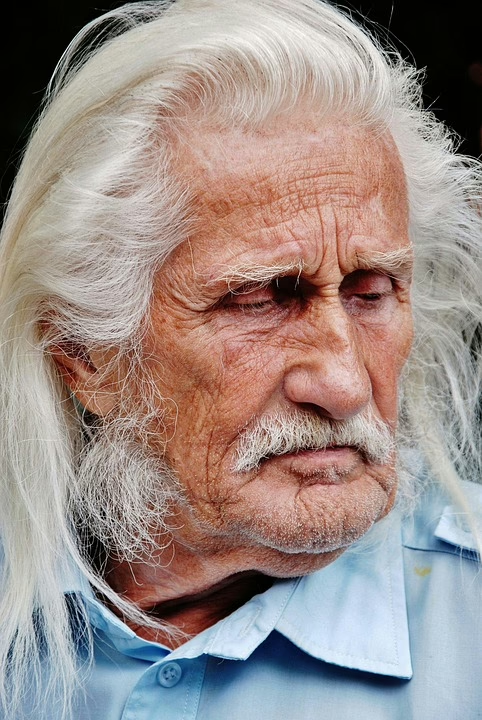
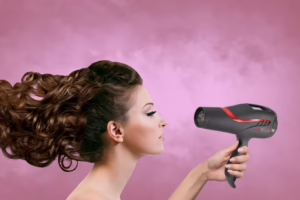
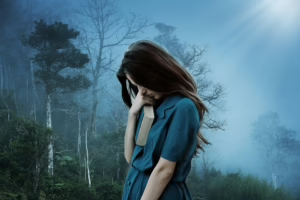
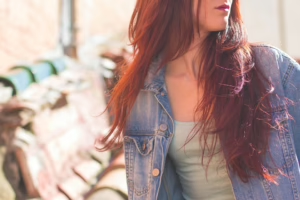
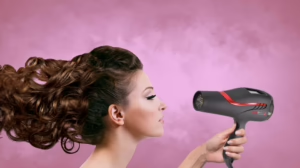
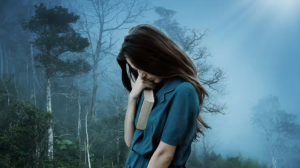
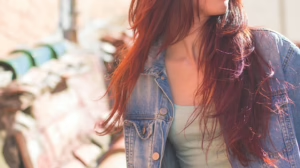




Add Comment